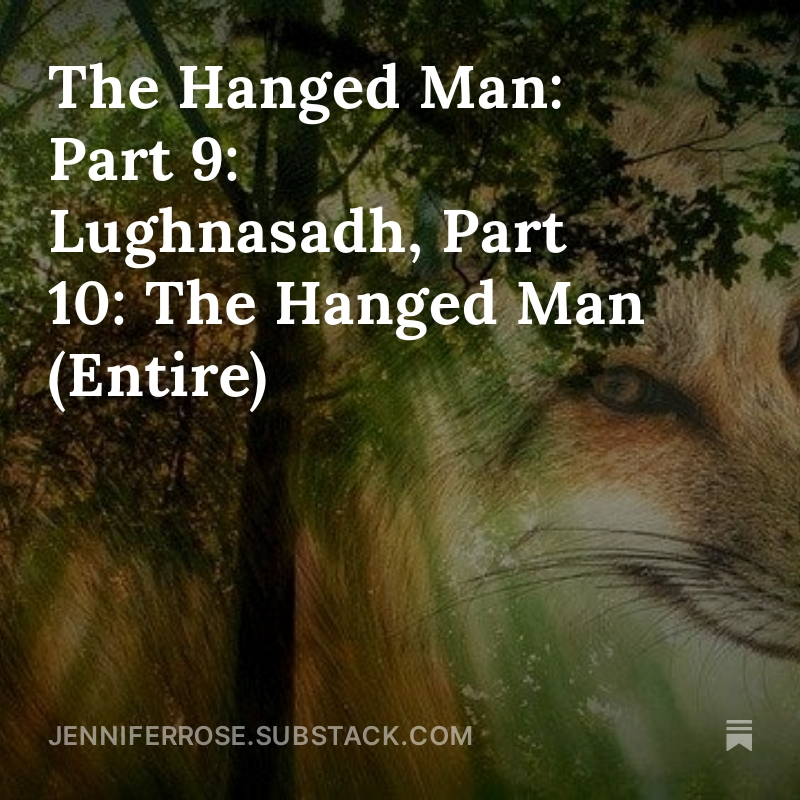by Jenny Rose | Jun 8, 2024 | Connection & Community, Emotional Intelligence
My work team and I are always on the lookout for new ways to work with our pool patrons. We look for new moves and songs for water exercise classes and new ideas for working with swim lesson kids. 
A few weeks ago, a team member remembered an old book she’d seen titled The New Games Book. She remembered it as a resource for non-competitive games focused on play and teamwork rather than winning and losing, and we wondered if we could adapt some of the games to the water. I was interested, as I’m notoriously noncompetitive, to the point where a competition of any kind feels traumatic. Fortunately, we have a local librarian as a pool patron; she found a copy of the book. The copyright is 1976. The Dark Ages.
It is indeed filled with a variety of games, as well as black-and-white photos of people playing.
People playing. People in parks and other common outdoor areas, people of all ages, laughing, smiling, playing, and … touching. Dogs, too. It was like looking at a different world. I paged through the book, marveling, feeling sad about how much we seem to have lost. In the end, we concluded we couldn’t adapt any of the games to the water because they all involve touching.
We can’t adapt noncompetitive, team and community-building games for kids from this book because they all involve touching. It seems unbelievable.
I don’t blame the pandemic. It didn’t help matters, for sure, but social physical contact began to diminish before that. We’ve been gradually turning away from each other to look at screens for decades now, and as that’s happened social touch has become vilified.
When was the last time you went to the park to walk your dog (or just yourself), maybe with your kid(s), your mate, or a friend, met other people from your neighborhood there, and you all (dogs, too) played a silly game, or even something like frisbee?

Photo by Helena Lopes on Unsplash
Yeah. Me, too.
People play video games online together. My sons do that, one in Colorado and one in Montana. They’ve been doing it for years, even when they both lived in Colorado and could have gone to the park together.
Culturally speaking, we’ve never dealt well with touch. How could we in the context of patriarchy and rape culture? I’ve been raped, and I’ve been hit. I knew it wasn’t okay for a man to hit me, but at least it was some kind of touch. Believe me, I know how terrible that sounds, but I have always been so skin hungry because of infancy and childhood touch deprivation, even getting hit was better than no touch at all. It made me feel real. Blood and bruising are real. It made me feel alive – for a moment.
Can any of us be fully healthy without appropriate social touch? I know I can’t.
I have several friends who are uncomfortable with touch. Two were raised in the Catholic church, a fine patriarchal and shame-based system. One was sexually abused as a child.
Social touch is so complicated. How do we mandate appropriate touch? What do we do with adults who believe nonconsensual sexual contact with children is healthy and natural? How do we address boundaries, self-respect, sexuality, and family planning? What do we do about rape? How do we protect children whose parents believe physical abuse is the best way to discipline them? How do we know when it’s safe to touch someone and when it’s not? How do we incorporate the idea of consent back into our lives?
Now AI looms over us. Every day I read predictions about its influence, about those who are experimenting with it. I hear from people who predict AI is the end of all creative culture and people who believe it will support and nourish creativity.
One thing I know: No technological immersive experience, no matter how well crafted or engineered, can replace living, breathing physical interaction. Physical intimacy (not just talking about sex) is sensual – it involves all our senses, including the marvelous, taken-for-granted organ we call our skin. Human physicality is not a sterile algorithm. It’s not a porn film. It’s not filtered, airbrushed, photoshopped. A human being is a mass of contradictions, of scents, sounds, and textures. We’re unpredictable. We’re illogical. We’re beautiful and hideous, sacred and profane. Interacting in healthy, useful ways with other humans is challenging, offensive, and often dangerous. Also hilarious, fascinating and, increasingly, necessary if we want to survive. Human relationships are not fairytales, rom coms, TikTok videos, or roleplaying games.

Photo by Liane Metzler on Unsplash
I don’t believe we can make a substitute for human touch. Our bodies and perhaps our souls cannot thrive without it. Yet we are steadily eroding our ability to exchange or even recognize healthy touch, to the extent that the documented behavior of one of our most powerful political influencers is a clear demonstration of rape culture in action, and his followers, many in the top tiers of power, either don’t care or actively support his misogyny.
Touch, like climate, like food, like political systems, is unbelievably complex. At the same time, we must have a planet that supports our physical needs, we must eat to live, and unless we’re the last person on the planet we must figure out how to make decisions with others. If we don’t do those things, our species will die. Life and death as a binary are not complex at all.
If we lose touch, how much meaning, pleasure, and health will we lose from our lives? As our ability and willingness to exchange appropriate touch diminishes, are we healthier and better connected or increasingly divided and unhealthy? Note the present mental health crisis among young people. Most agree enforced isolation during the pandemic did not support our social needs, especially the health and development of children. At the same time, we deliberately and cheerfully offer ourselves every day to technology that actively and purposefully isolates us from living, breathing, face-to-face interaction with the physical world and other people without even noticing.
When I try to imagine a world without the feel of my cats, the earth and plants outside my window, supple bread dough rising in its greased bowl, the laptop keys under my fingers, a cup of hot tea between my hands, cool water against my body as I swim, the energetic little bodies of children I teach to swim, and all the other countless things I touch each day, I can’t. I don’t want to. My brain might be fooled by an immersive AI experience, but it’s hard to believe my body could ever be nourished and satisfied by one.
As I was thinking about this post, I came across an essay from a poet I follow on Substack, Anagha Smrithi, titled “In the Age of AI, Poetry Matters More Than Ever.” In it, she wrote:
“Our hands need something to hold onto. Our fingers need something to touch.”
I’m glad it’s not just me who values touch.
Questions:
- How do you feel overall about human touch?
- Who in your life are you able to exchange healthy touch with?
- Do you prefer your social life to be online or in person?
- What’s a favorite tactile sensation or texture?
Leave a comment below!
To read my fiction, serially published free every week, go here: 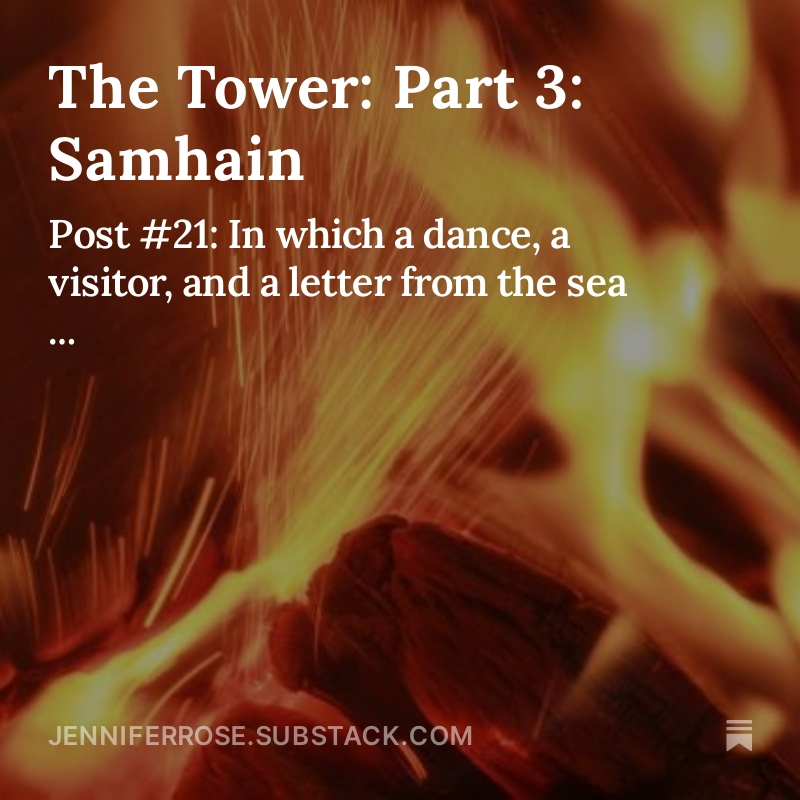
by Jenny Rose | May 26, 2024 | Connection & Community, Emotional Intelligence
I’ve always said I hate politics. In hindsight, what I was really expressing was discomfort with divisiveness and conflict, lies and deceits and power games. Talking about politics feels like pinning Jello to the wall. People throw labels and jargon around. Terms are not defined and agreed upon. True intent is obfuscated. Actions and words don’t line up. Contempt and outrage rule.
The last eight years have been brutal in the political arena. I have an internal list of words that send me into immediate flight from conversations and interactions. If I can’t flee, for example if I’m at work, I put on a neutral face and withdraw, leaving a robot to carry on until the subject has changed to vacations, or family, or gardening, or even the same personal health stories I’ve heard from patients and patrons many times before. Anything but politics.

Photo by roya ann miller on Unsplash
Yet everything feels politically charged right now. Every aspect of our culture, our basic needs, our planet, our economics, our bodies and our minds, winds up in an increasingly bleak morass of hatred, violence, fear, isolation, and manufactured confusion.
Interestingly, in my own fictional work, I’ve been stuck for some time in writing about a small egalitarian community whose harmony is disrupted by a member who actively seeks more power. The de facto leader, a woman, doesn’t know how to combat this aggression because I don’t know how to combat it!
Last winter my partner talked with me about a video series he’d found on YouTube called What is Politics? Before he was finished talking I was shaking my head. I wanted nothing to do with it. The words and terms are meaningless. It’s all just hate. It’s impossible to talk sensibly about and I don’t want to know more than I know; I don’t want to wander around in a toxic wasteland during my free time. Besides, I want to read, not listen to and watch YouTube.
(Yes, I am a bit of a snob that way.)
My partner sent me a link anyway. He’s persistent like that. I was duly annoyed. For some reason, I didn’t delete the link. One day when nothing in particular was going on I clicked through and watched it.
Irritatingly, I was impressed. The presenter (I think his name is Daniel) is smart, by which I mean he’s incredibly knowledgeable, well read, well spoken, and he’s a synthesist. He understands complexity. He has a sense of humor. He was not hateful and he did not speak in jargon. He pushed no ideology. He defined every single term he used. In fact, the very first thing he did was define politics as “anything related to decision making in groups.”
That simple, clear definition hooked me. I saw at once that politics are everywhere because politics are everywhere. My perspective widened from our current shameful global and national politics to include home, school, work, and neighborhoods. When two or more people are together anytime, anywhere, politics are in play. My resistance dissolved. I wanted to learn more. I sensed I was on the edge of figuring out how to solve my creative fictional dilemma.
My partner sent all the links to the video series and I settled down to go through the videos, one at a time. I use a split screen, taking notes on one side and watching the video on the other.
Politics is about power, the power to make decisions. It’s ridiculously simple. Without understanding it, I’ve been writing about politics for eight years on this blog as I explore choice and personal power. Power is something we all need to understand and master; it’s the cornerstone of emotional intelligence and living effectively.
This series has been the most valuable piece of learning I’ve engaged with since I learned emotional intelligence, more than ten years ago. I understand now why I’ve never been able to get a handle on politics, and why I’ve been so repulsed by the whole subject. Subconsciously, I’ve recognized the language games and manipulations, and I won’t deal in language games and manipulations. I don’t trust ideology, including my own. I don’t trust “news.” I don’t trust all the “worbs,” Daniel’s term for meaningless language no one defines clearly and correctly. Just about the only thing I do trust is that following the money behind every ideology, whether it be food, climate, aspects of gender and sexuality, geopolitics, religion, or elections, invariably uncovers corruption and reveals the puppet masters.

Photo by Tim Gouw on Unsplash
And we are the puppets. Nicely divided along manufactured lines. Emotionally manipulated into defensiveness, distrust, hate, and fear so any kind of unity against the powerful elites who have a stranglehold on the vast majority of wealth and decision-making becomes increasingly improbable. The economic inequality most of us stagger under, the thing we all have in common, cannot be clearly seen because we’re captivated by a thousand tempting but ultimately meaningless ways to hate and fear one another.
That’s just the way the people at the top of the hierarchy want it. We’re good little “patriots,” incapable of unifying.
I don’t usually choose willful ignorance. It’s not a useful choice, but until now I hadn’t found a clear, concise, pragmatic way to become educated about political terminology and history. I’ve never before recommended a video series. I hope you will check out What is Politics.
Questions:
- What are your current reactions to the subject of politics?
- What aspect of politics do you find particularly troublesome or uncomfortable?
- Do you feel more or less connected to family, friends, neighbors, and community than you did ten years ago?
- Would you prefer to live in a political context of economic equality or economic hierarchy (our current state)?
Leave a comment below!
To read my fiction, serially published free every week, go here: 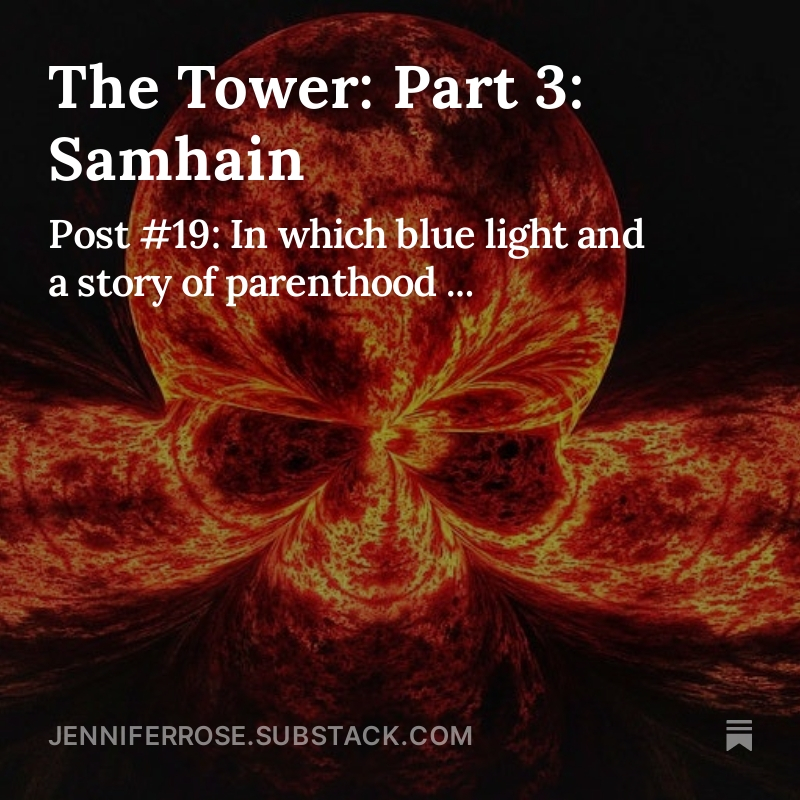
by Jenny Rose | May 11, 2024 | Connection & Community, Emotional Intelligence, Shadows
… and she met a bear. She froze, watching it watching her, seeing the long claws, the muzzle raised to sniff the air, the marvelous deep pelt. She thought about everything she’d ever heard about dealing with bears. She stood still, attempting to convey the energy of no-harm.
The bear let out a “whuff” of breath, turned, and shambled away.
THE END
Once upon a time a woman walked through the woods and met a man she did not know. He made no eye contact, said nothing, and walked on. The woman followed his lead and ignored him, continuing on her way in a direction well away from his. She was conscious of a new alertness, a slight acceleration in her pulse. Her peaceful walk, her gratitude and appreciation of the balm of nature, her healing solitude, now took on the aspect of carelessness and risk. She knew some would say she was asking for trouble to walk in the woods alone. Was her comfortable clothing provocative? Were her jeans too tight? Did they send a signal that she wanted sex? Where, exactly, was she? If she called for help, could she be found quickly? Was she sure what direction she was walking in? She didn’t want to catch up to the man, didn’t want him to think she was following him or trying to get his attention. She didn’t want to linger in case he’d doubled back and was behind her. How fast was too fast? How slow was too slow? What was the fastest way back to her car?
She stopped, hesitating, sheltering behind a thick tree. Maybe the man was harmless. Maybe he had come to be alone and quiet, too. Maybe he’d hardly noticed her. Maybe he was a good man like her brother, her friends.
Maybe he was parked near her car and would wait for her to come out of the woods …
TO BE CONTINUED
Once upon a time a woman walked through the woods and met a man she didn’t know. He made eye contact with her, smiled, said, “How are you?”
The woman made her face smooth and calm, but inside she shrank and adrenaline kicked through her. Should she smile? She’d been told not to smile at strange men, lest it be misread. Should she reply to his greeting? Should she walk on without acknowledging him, or would that make him mad? Or hurt his feelings? (Probably he was a perfectly nice, harmless man.) Did she have anything she could use as a weapon? She’d seen no other cars when she parked; was anyone within earshot?
Her thoughts raced. Her steps slowed while she considered what to do. She smiled slightly without meeting his eyes. She didn’t speak and didn’t stop. As she walked away, she listened for sounds of him behind her, but all she could hear was the hammering of her heart. She didn’t dare look over her shoulder in case he was behind her and took it as encouragement. She felt naked. Were her jeans too tight? She wanted to take off her jacket and tie it around her waist, but she didn’t want to do anything to make him think she was afraid of him. She forced herself not to run. She lengthened her stride, standing tall, trying to project assertiveness.
She began to circle widely, back to where she’d parked her car …
TO BE CONTINUED

Photo by freestocks.org on Unsplash
I’m not on TikTok (God forbid), but I’ve been hearing about a recent viral sensation around the question of whether, as a woman, we’d rather meet a bear in the woods or a strange man. The vast majority of women would much prefer to meet a bear. The question was posed to me with no context and I didn’t need any time to think about it. I’d rather meet a bear, of course. A bear isn’t going to rape me. Bears don’t carry guns, abduct women, or hurt women for pleasure. I’ve often had brief interactions with black bears, both here in Maine and in Colorado. I’m not food. Any food I’m carrying can be tossed aside. As long as I don’t inadvertently get between a mom and her cubs, I’m not a threat, not something that needs to be attacked. If I am attacked and mauled, I’d far rather be hurt that way, or even killed, than fall into the hands of a twisted man. Bears are predictable. They don’t stalk, torture, lie, manipulate, kidnap, use substance, or terrorize for the fun of it.
A man might do anything.
A bear would recognize me as a human being. A man might not.
I’m told there’s a lot of anger from men about this answer, to which women respond with, “Thanks for illustrating the point so well. See? That anger, that language, that defensiveness and denial are exactly why we’d rather meet a bear than a man.”
And around and around we go.
Interestingly, an article I found that talked about this said when a man was asked if he’d rather his daughter met a bear or a man while walking alone in the woods, he eventually chose a bear.
I think about these things more than I have in years. I think about them every day at work, where I interact with all kinds of people as a professional, and every day as I walk the few blocks to and from work. I’m angry about it, because I assumed by the time I was 60 this sort of thing would be behind me. I forget this kind of behavior and threat really has nothing to do with my age and attractiveness; merely being a female is enough. For some men.

Photo by Sam Burriss on Unsplash
There’s no point is saying “not all men” because everyone knows that. Of course not all men are a threat to women; that’s not the point. The point is all men might be a threat and women can’t tell. We have to assume “all men,” for our own safety until we’re satisfied the man we’re interacting with is OK. Sadly, we’re often wrong. The vast majority of male violence against women and children is perpetrated by someone known, either a close connection or an acquaintance.
Men close to me who I trust have told me I’m “too nice.” I’m too warm. I’m too empathic. It’s infuriating. All my life I’ve worked with people. I like people (mostly). It doesn’t occur to me commiserating with a (overweight, completely unattractive, past middle-age old hippie with six strands of hair in a ponytail) patron over chronic back pain (beer belly) could possibly be seen as a come-on, an invitation to flirt and step over boundaries. Until it happens. And then I’m furious with myself, with him, with a world where a 60-year-old female lifeguard can’t say, “Jeez, sorry about your bad back,” to a male patron without having to spend the next month acting like a stone-cold bitch in order to reclaim boundaries.
It’s exhausting, and nearly impossible to explain to a man. It’s simply not in their experience and most of them can’t imagine living this way. But every woman knows exactly what I’m talking about. The divide between women and men gets deeper and deeper, fills with resentment and even hatred, because some men can’t or won’t understand our reality. It breaks my heart. Healthy men and women need one another. I don’t think we can effectively address the problem of male violence against women and children without healthy men.
I’m also thinking about this because we’re about to embark upon a major remodeling project in our home, which means we’ll have some months of workmen coming and going. I like men and I love watching men at work, learning about structure and building, observing, chatting. I would also like to occasionally make cookies or muffins, buy pizzas, and find other ways to show appreciation for the hard and expert work these guys will do. I want to communicate clearly and assertively with the contractor to make sure we’re on the same page and we understand one another’s expectations. I want to make healthy, respectful professional connections.
But I’ll probably let my male partner do most of the interfacing. He’s the one at home all the time anyway. It’s safer for him. I will connect with the contractor and write checks, but otherwise I’ll make myself small, stay out of the way, and try not to attract attention, including refraining from expressing “too much” gratitude or warmth. Whatever the hell that means.
It makes me sad. This is a big adventure for us. I’d like to have fun, embrace the chaos and change, enjoy the process and get to know the people who are making it possible. But the risk is too great.
This bear versus man viral question is important because of the spotlight it shines on female experience. Instead of an opportunity for further male outrage and denial or stoking more hatred for men among women, it could be a moment to foster a better understanding of the experience of having to live defensively every single day as a woman, knowing even that may not save us from male violence, and if we do fall victim to male violence, we’ll be blamed for it. (Our jeans were probably too tight. Or we shouldn’t have been walking alone.)
Or we could just go talk to the bears.
Questions for women:
- Would you rather meet a man you don’t know or a bear while walking alone in the woods?
- When a strange man is friendly with you in person (and you’re not looking for a date or a lay), what do you do?
- What do you routinely do in an effort to avoid male violence?
Leave a comment below!
To read my fiction, serially published free every week, go here: 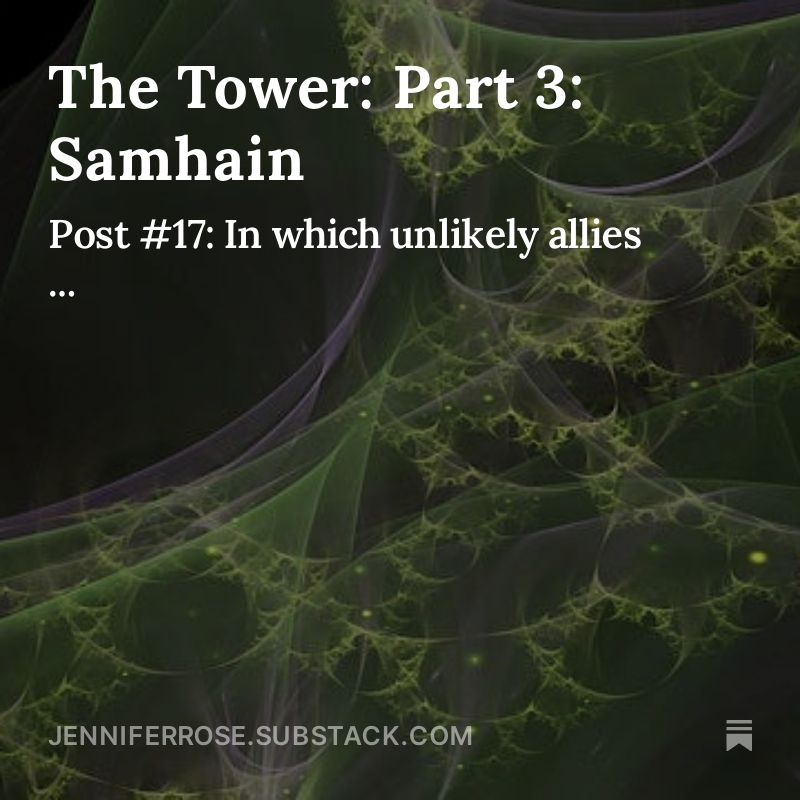
by Jenny Rose | Apr 13, 2024 | Connection & Community, Emotional Intelligence, Shadows
I have felt, for a period of some years and more frequently since 2016, that the planet would be better off without human beings. I’ve said it, I’ve thought it, and this is the first time I’ve written it. I would be happy to be the first in line, gladly give up my life in the certain knowledge that without us, Earth could heal, cleanse itself, and nurture all the countless species we have failed to notice, value, and cherish. Let the rape stop. Let the wide-scale poisoning stop. Let the brutality, suffering, stupidity, greed, and criminal disregard for others stop.

Photo by NASA on Unsplash
I freely admit to the pessimism and bitterness inherent in my view. I’m also aware of how paradoxical it is. I truly care about most people. Put a single human soul in my path, and I rarely fail to make a connection and feel some kind of empathy and kindness for them. I’ve spent my life caregiving, supporting, and teaching people, taking great joy in my contribution.
In my last few posts, starting with “The Locked Room,” I’ve thought a great deal about self-love and self-trust. It occurs to me my despair over human behavior as a whole must include me. My willingness to see us all wiped out includes a willingness to be wiped out myself. If other humans are capable of the atrocities happening all around us every day, so am I. If I want to see that dark potential destroyed, if I’d be glad of it, even, my self-love is seriously incomplete.
I’m not sure I’d call it self-hate. I don’t hate myself, you, the stranger on the street, or friends and family, but I hate what we are capable of. I hate what we can (and in some cases choose to) do. I believe some of us are willing to heal, grow, change, unite, and make better choices, but right now most of the human power in the world (as we understand power) lies in the hands of a few louts nobody seems to be able to overcome. Indeed, many cheer them on.
And that could be any of us, cheering them on. In the right context, with the right ideology, it could be any of us. I am too old to tell myself fairy stories about how I would never fill-in-the-blank. Easy to say as I listen to my sheets rotating in the washing machine, drink clean water from my tap, notice the old copper pipes rattling as the furnace comes on, and type on my laptop in my fully electrified, clean, intact house in a peaceful neighborhood on a Saturday morning with my feet propped up on my desk. I am sane. I am healthy. I am well-fed, housed, and employed. Most people do not have the luxuries I take for granted, the safety, the peace. People do terrible things out of terrible pain and dysfunction. I am not immune. None of us are. I’ve been fortunate, and that’s through nothing but luck.
A few weeks ago I read a piece by an author on Substack, Anna Kay, who writes a newsletter called The Hinterlands. I stumbled across her “A World Without a Heartbeat” by chance. She was not a writer I was familiar with, though I have since subscribed to her. She turned me inside out. I wept. I was comforted. I was awed and envious of her evident belief in human goodness. I was softened. I was challenged.
Most of all, I was challenged. As I read her words, I glimpsed a different frame, a frame of hope rather than bitterness.
I could not possibly paraphrase her words and I wouldn’t dare try to give you a synopsis. It’s not a long piece, and if you only follow one link out of the hundreds I’ve posted here in the last eight years, let this be the one. Please.

By Photoholgic on Unsplash
What moved me most was a world without humans would be a world without stories. A world without stories, a world without music, a world without art. A world without reverence and gratitude for nature. A world without human appreciation. Somehow, that seems like a terrible loss. I’m not sure why. Wouldn’t the planet be every bit as rich and beautiful if no one enjoyed it? Surely it would. Yet the loneliness of feeling unseen and unappreciated hurts because I’ve lived in the heart of that feeling.
The question I ask myself is am I willing to allow some or all of my bitterness to dissolve in order to deepen my ability to self-love? Bitterness is a heavy burden and there’s plenty in the world. Do I need or want to add to it? Is it useful?
It’s true we humans are capable of terrible things. Isn’t it also true we’re capable of remarkable courage, generosity, intelligence, creativity, and love?
Couldn’t we each make a list of human teachers, guides, beloved ones who have inspired us, protected us, and made us smile as well as a list of those who have done us wrong?
Our choice is which list to make, which to dwell on.
I’ve become deeply involved with the Substack community. I follow several other creatives simply because they inspire me. They make me feel better about the world, about life, about myself. They balance some of my despair and horror regarding the state of the world with beauty and hope. I’d like to introduce you to some of them:
Questions:
- Do you believe humans have value as a species? Why or why not?
- What human-driven activity gives you hope?
- Do you see humans as part of a healthy planet or an invasive species, wiping out all competitors?
Leave a comment below!
To read my fiction, serially published free every week, go here: 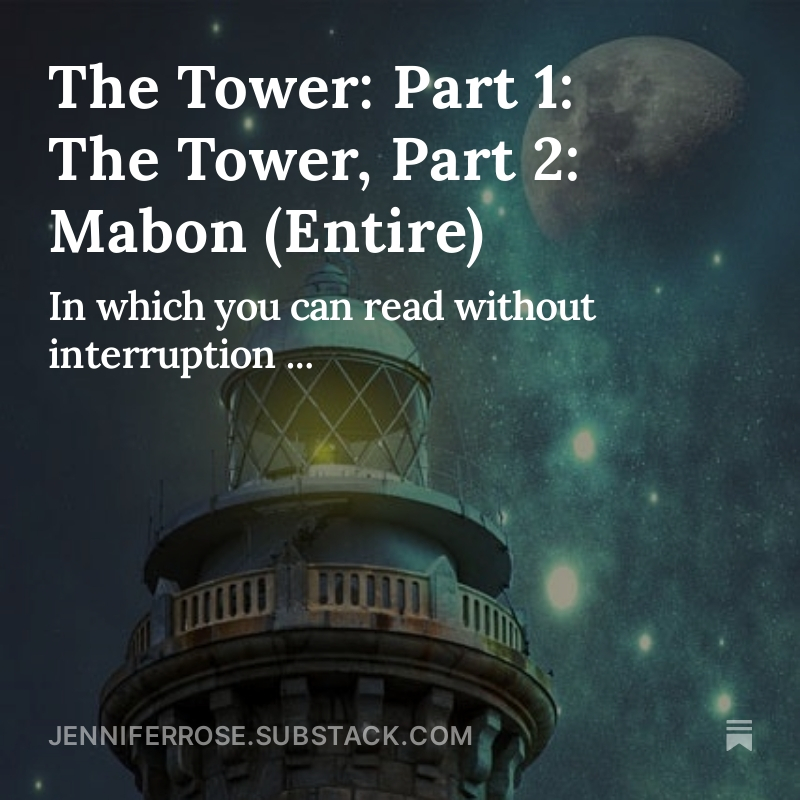
by Jenny Rose | Feb 3, 2024 | Connection & Community, Emotional Intelligence
For me, February 1st is the first day of spring. I know it’s early. I like it that way. I like the anticipation, the half-intuited first stirring of life under the soil, under last year’s debris, the slow, cold wakening of seeds, stiff in their dormant shells but quickening, murmuring, “Is now the time …?”
The birds are the first harbingers for me. Here, in this place, a small city in central Maine, it’s the crows, the jays, the cardinals, and the little tufted titmice. The crows and jays complain in harsh voices of salt-encrusted pavement, tired snow over lumpy ice, the steely cold. Cardinal pairs flit in my bare, bedraggled forsythia, and visit the feeders, a startling splash of color in the grey and bone landscape.
The titmice sing. Joyful, bursting little songs of nests and eggs, of green growth and warming light. The first spears of bulbs, the budding lilac, the luscious magnolia petals are in their song, though those things are only memories and hopes in the February garden.
(As I edit this, the first goldfinch outside the window.)
(On the morning of the day I publish this, at dawn, the chickadee’s two-note spring call.)

Photo by Ales Krivec on Unsplash
I have been feeling quiet. I’m burning down the last two Yule candles, gradually bringing out those of white and ivory, scented with lavender and herbs. Midwinter festivities are packed away, red table linen and warm-colored throws washed and folded for another season. I’ve been spring cleaning, making glass shine, mopping the scarred old floor, washing cupboards and doors. I walk to and from work bundled up in wool and fleece, the cleats on the bottoms of my boots clicking on the bare pavement and keeping me anchored in the ice and snow. The cold makes my eyes water, my nose run, and my ears hurt. At night, after closing the pools at 6:00, I drop a fluorescent sash around my backpack and chest and hold a small flashlight in the hand closest to the traffic, a white LED light shining ahead, a red flashing light showing from behind.
At times sleep has been thin and wrinkled this winter. In other periods of ebbing sleep I’ve felt frantic and exhausted, but this time I don’t mind. The long cold nights are restful whether I sleep or not, lying comfortable and warm in my chilly room, cocooned in linen sheets and a down comforter. I think of stars overhead, the moon on her path, ebbing and flowing, the tides lapping against the stony coast not so very far away. The hot water pipes in the radiators pop and click reassuringly.
I remember ice skating as a child, gliding smoothly over frost and snow, soaring over magically transformed water, cold biting like the crystalline sound of the sharp-edged skate blades, but warm in body from the rhythmic thrust of my legs. I haven’t skated in more than 50 years, but I remember it now, the freedom, the rhythm, the pleasure, the sense of inconsequence, as though nothing mattered, all was easy and graceful and flowing.
As the old year and winter inch over thresholds into something new, I am companioned by memories. This time last year is a constant whisper in my mind, because this time last year my mother was dying. I am not preoccupied with any time before that. After a lifetime of striving to understand and repair family history and relationships, I have surrendered to what was and what is now over. My battered empathy lies tranquil, not ravaged and torn but manageable, docile, turning over the pieces of last year with gentle intention.
In the clarity of cold winter, in my internal peace, I am alive, aware, receptive in new ways. I learned much in the last year, but intellectually. There was not time for more. The intensity of the situation, the constant crises, the long distance management, the anguish, the helplessness, the impossible tasks, the planning, demanded everything I had. I did not have time to process, to think long and deeply. I did not have the strength for it.
But now, now the past year echoes within my bones and flesh and memory. The ghosts of my feelings and experiences are miraculously without anguish, without horror, whispering a half-remembered story from childhood in which everything works out in the end. 
Mom herself does not haunt me. She wouldn’t come back to me in any case, but even before that thought has formed I realize she wouldn’t come back to any person. If she is in a place we can call somewhere, she’s with her animals. No one who knew her well or loved her could doubt it. She wouldn’t come back to anyone, not just me. I knew it before, but now I feel it, and the feeling is gliding, no friction, just freedom and clean, cold air. I can picture her face, laughing, joyful, with manes and tails, paws and shining coats, flopping tongues and pricked ears all around her. And I’m happy for her happiness.
A year ago I was home again after my first trip back to Colorado. I wrote on the ice, on the surface of things. I think without that I might not have stayed the course. It was my lifeline. I was surviving.
A year ago I noticed but did not feel the presence of the birds. The first weeks of Spring came and went; I was focused on the next trip to Colorado, on arranging an estate auction, on supporting my brother in finding renters for Mom’s home, on maintaining communication with Mom’s community, her caregivers, and family. I had no attention for anything but calls and texts as her condition and behavior worsened.
I was not here in April when the magnolia tree began to bloom. I did not kneel in the cold mud of the garden, rejoicing in the chilly sun as the bulbs first thrust up through the softening soil. We were dismantling Mom’s life in Colorado, reading the intimate stories of her history, her loneliness, her fear, and her private struggles. Revealing and releasing stories she never meant anyone to know, casting her life’s possessions and debris into the world, one way or another.
My brother was heroic. The community was stalwart. One step at a time, one item at a time, one mile and minute at a time, we got through it. Somehow.
Home again in May, and back to my life, but only in the motions. Some intuition kept my focus narrow, looking only at the next task, the next step. I gave myself time in the garden, time in the sun. I moved my body. I ate, and worked, and showered, and wrote, releasing my razor-sharp feelings and experience gingerly in words, like so many chips of ice. Now and then I found a moment of peace, a small oasis in between calls and texts, in between Mom’s querulous voice and caregiver check-ins, in between broken nights. But I did not try to plumb the depths of myself. I knew it was not time and I hadn’t the strength to stay safe.

Photo by Christopher Campbell on Unsplash
Summer bloomed fiercely and slowly withered as Mom did, until she was released in August.
She was released, but the work of wrapping up a life went on and on, the majority falling on my brother’s shoulders. He soldiered on. We signed and notarized papers, transferred ownership, sold the house, thought about taxes. I dealt with family jewelry and wrote an obituary, and chose a picture for the local paper.
Autumn came. On Halloween, I thought a year ago today she fell and broke her hip and it all began to end …
Winter came, and passed.
Spring is on the threshold. It feels like my first spring in this new house of ours. And now the ice begins to melt. Now I am not skating on the surface of things because the surface softens and melts, warms into depth and movement, into living water, cleansing and healing. The broken edges, the shards, blunted in the sun before melting away.
Water has ever been my strength and my safety. I take off my skates and float in my depths, my memories weightless, my ghosts drifting quietly, the echoes of the past fading away into peace as I allow them to brush against me, perhaps not for the last time – who knows? I will not be afraid if they visit me again. They are familiar now, and will melt again, as winter melts into spring.
“Ice holds memories … great islands of ice … hold many stories, but they’re just the fragments. Most of the stories are gone.”
—James Roberts at Into the Deep Woods
Questions:
- What signals spring to you?
- What intense experiences have you had to unpack slowly, over a long period of time?
- How do you manage your intense feelings?
Leave a comment below!
To read my fiction, serially published free every week, go here: 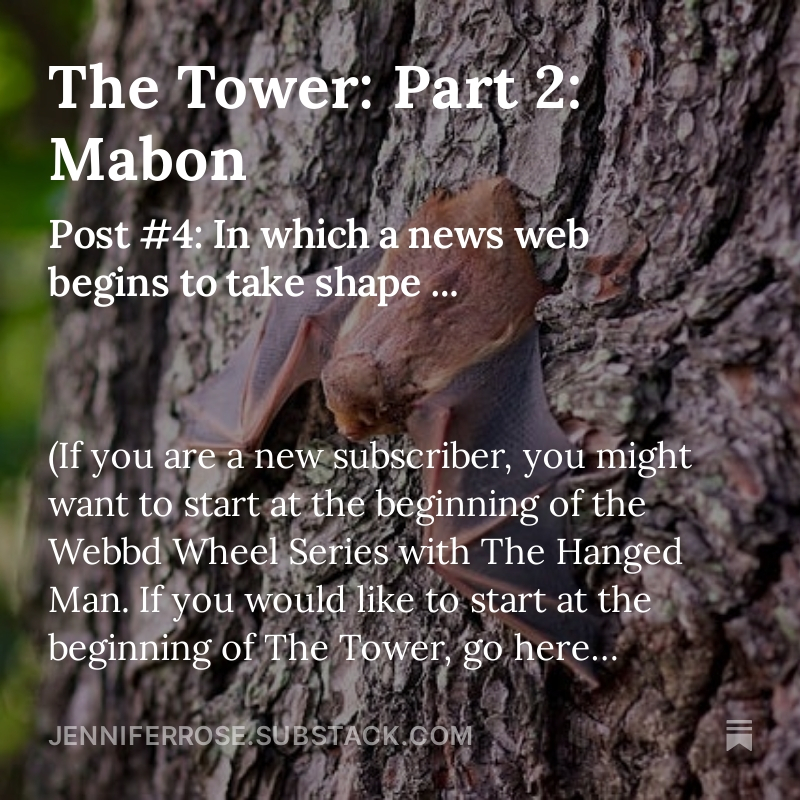
by Jenny Rose | Jan 6, 2024 | Aging, Connection & Community, Emotional Intelligence
I’ve been resting in this pause between solstice and the new year. Although I made a conscious choice to set aside everything I could, it was uncomfortable to let this blog lie fallow. On the other hand, I have not been inspired to do much more than manage day-to-day life.
I’m grateful to have moved into new holiday routines after decades of feeling imprisoned by obligation and duty to my fractured family and making Christmas meaningful and fun for my children. Gone are the days of huge, exhausting meals, tight schedules, trying desperately to please everyone at my own expense, spending much of the holidays in the car traveling between homes, and tired, overstimulated children. Not to mention tired, overstimulated me.
Now I focus on Yule, on the deep, introspective peace of winter and long nights, withdrawing into my cozy home. I engage in rituals I love: candles, simple decorating, making a double batch of Spritz cookies with my cookie press to share, and welcoming the return of the light.
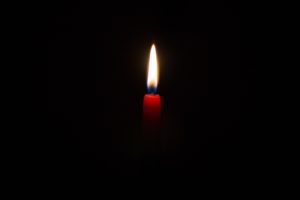
Photo by David Monje on Unsplash
This year we had a tropical storm the week before Christmas with high winds and torrential rains that flooded our town and, indeed, the whole state. We were without power for 48 hours. The lack of electric light (or electric anything else) fit in well with Yule, though we got very cold. We were also trapped; every bridge in the area was closed and the Kennebec River, which winds through our town, rose 30 feet, which is 15 feet above flood stage. Between flooding and downed trees, we were unable to leave our immediate neighborhood. Most businesses closed. The ones that stayed open (with generators) quickly ran out of everything. Our neighbors loaned us a butane camp stove so I could heat water for hot drinks.
As soon as the power was restored I ordered a propane camp stove.
Life rolls along, whether I’m posting or not.
This morning, as I lay in bed waking, I heard snow plows in our neighborhood. We’ve had more rain here, and clearly sometime during the night it had changed to snow. As I moved around the kitchen, watching the sky lighten and the snow fall, cooking breakfast, sipping my first cup of tea, enjoying glowing candles, my thoughts drifted.
Impossible to avoid end-of-year lists and reviews and new year resolutions, hopes and fears this time of year. I generally am uninterested. I’m content to let the old year diminish and recede, particularly this one, which was especially difficult personally. I don’t enjoy new year resolutions, mine or anyone else’s. None of us know what the new year will bring and many of us look ahead with some trepidation and anxiety; I don’t need to exacerbate mine by making or consuming predictions. What will come will come and we’ll have to cope with it.
I will be 60 this month. Impossible. Incredible. For the first time in my life, I’m daunted by a birthday. Generally, I hardly notice them. I’m annoyed by my discomfort this year. I’m determined not to focus on it, but I keep seeing it out of the corner of my eye.
I asked myself a question as I moved around the kitchen this morning. If I could have anything for my birthday, if I could make one intention for the year ahead, what would it be?
It’s easier to think about what we don’t want, isn’t it? I reviewed my current challenges and anxieties, watching the pewter sky and the snow becoming less rain and more flakes as the temperature dropped. I flipped the bacon, gave the cats another half a can of food so they would get out from under my feet. The pipes in the radiators creaked and popped as the furnace turned on.
The word ‘simplicity’ came into my mind. I turned it over. I thought about what brings me joy. I thought about candles, reading a good book, the warmth and weight of a cat in my lap. I thought about a cup of hot tea. I thought about music, the rhythm of swimming, being with people I love and trust. Sitting in my comfortable chair with my weighted blanket, just breathing. Peace. Stillness. Light and shadow. Long nights. My warm bed. Hot showers. Solitude. Privacy. I thought about my current laptop background. A perfect illustration of simplicity:
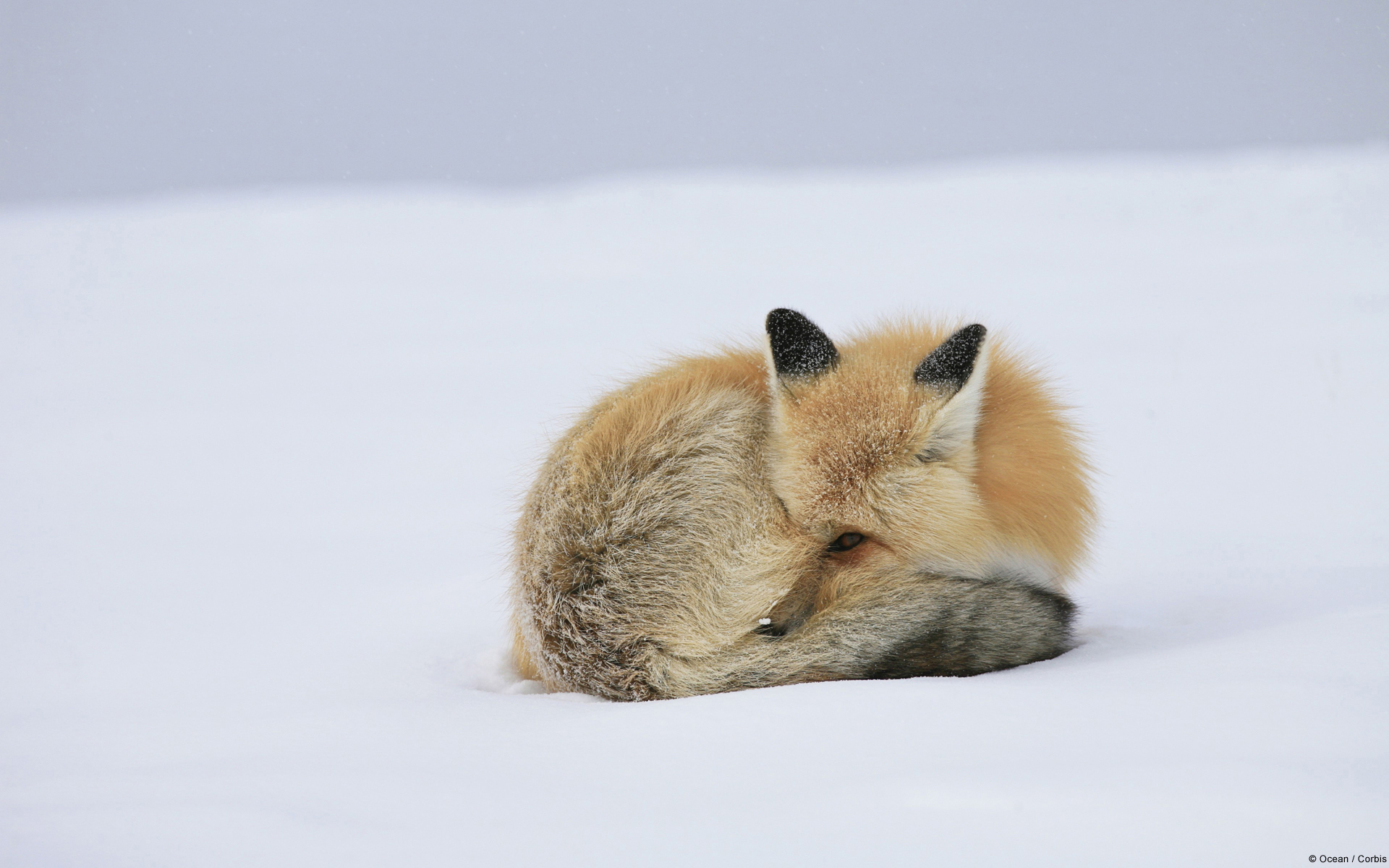
I thought about what I don’t want. The endless complications of being nice, pleasing others, fawning to stave off violence and pain. Clutter. Bright lights, noise, demands. Busyness. Obligation. Duty. Feeling hounded, imprisoned, criticized, judged by myself and others. Too much talk. Racing the clock.
I thought about boundaries. Inconsistent boundaries, badly maintained, easily breached; and strong, smooth, tough boundaries, well-maintained and consistent. Unapologetic.
I thought about the simplicity of ‘No’ and the complications of ‘No’ followed by five minutes of cringing apology and justification, or the inability to say ‘No’ at all.
‘Simplicity’, I decided, named my longing.
When I consider the first 60 years of my life I mostly see the unending labor and anguish of caring for others, the years of trying and trying, as only a woman who loves can understand, to love them all. To please them. To make them happy and healthy. It was complicated. Noisy. Chaotic. Bloody. Painful. Extremely expensive in terms of my own health and happiness.
And frequently thankless. Rarely reciprocated.
That’s what I thought I was for, to live that way. I was taught that was what I was for.
In the last few months I came across a little mantra which has become something like a prayer permanently nestled in my consciousness:
I am enough.
I choose my life.
I trust myself.
Sixty is a nice, round number. How would it be if I chose to begin again, now, with just myself; my own self-care, which is simple and easy? What if I chose to embrace the discomfort and power of maintaining strong, consistent boundaries and let people react to them however they need to, making their feelings none of my business? What if I stopped apologizing for what I need because it’s not what they need or understand or want?
What if I made up my mind to choose the simplest thing, the most direct, honest answer, the clearest communication in any given situation? What if I stood up for myself the way I stand up so readily for others?
Maybe 60 years of responsibility for everyone around me is enough and I could choose to spend the next 60 years (!) being responsible only for myself.
What a relief!
I don’t tell myself living more simply will be easy. It won’t. Boundaries, (I’m never allowed to forget) are invariably heavily challenged and battered by those who have the most to gain by us having none. Maintaining boundaries means conflict, a thing I dread and have always avoided as much as possible. It means emotional manipulation, the most painful (and successful) weapon those close to me can wield against me. It means Failing To Please. It means controlling my natural empathy, focusing it inward rather than outward, being more present with my own internal state rather than that of others.
Simplicity. What a lovely intention.

Photo by Das Sasha on Unsplash
Here’s a deep winter wish for you all:
May You Grow Still Enough
May you grow still enough to hear the small noises earth makes in preparing for the long sleep of winter, so that you yourself may grow calm and grounded deep within.
May you grow still enough to hear the trickling of water seeping into the ground, so that your soul may be softened and healed, and guided in its flow.
May you grow still enough to hear the splintering of starlight in the winter sky and the roar at earth’s fiery core.
May you grow still enough to hear the stir of a single snowflake in the air, so that your inner silence may turn into hushed expectation.
by Brother David Steindl-Rast
Questions:
- How did you spend your holidays? Did you spend them the way you wanted to or the way you had to?
- How do you feel about new year’s resolutions?
- What single word names your deepest longing?
- In your view, how do self-care and selfishness differ?
Leave a comment below!
To read my fiction, serially published free every week, go here: